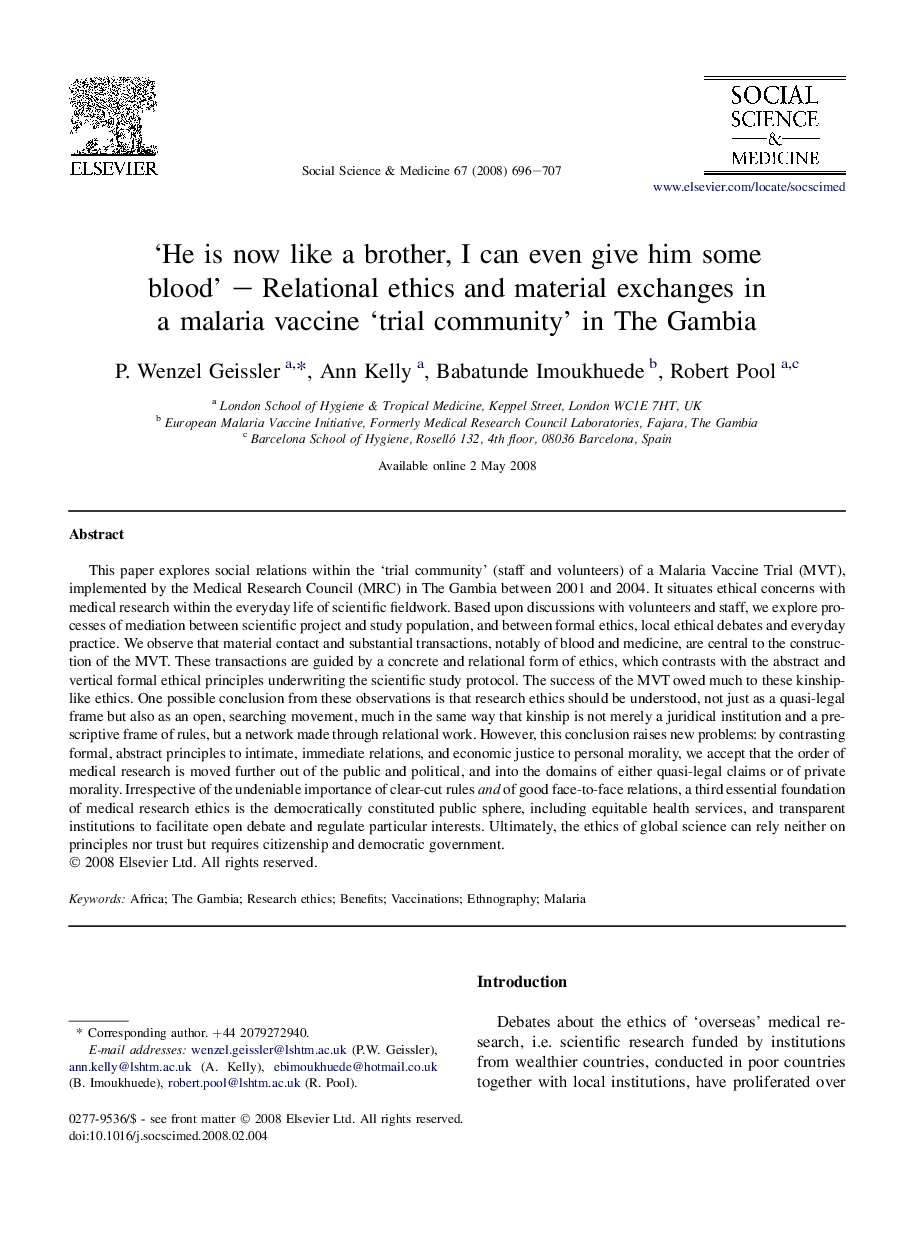| کد مقاله | کد نشریه | سال انتشار | مقاله انگلیسی | نسخه تمام متن |
|---|---|---|---|---|
| 10472309 | 927633 | 2008 | 12 صفحه PDF | دانلود رایگان |
عنوان انگلیسی مقاله ISI
'He is now like a brother, I can even give him some blood' - Relational ethics and material exchanges in a malaria vaccine 'trial community' in The Gambia
دانلود مقاله + سفارش ترجمه
دانلود مقاله ISI انگلیسی
رایگان برای ایرانیان
کلمات کلیدی
موضوعات مرتبط
علوم پزشکی و سلامت
پزشکی و دندانپزشکی
سیاست های بهداشت و سلامت عمومی
پیش نمایش صفحه اول مقاله

چکیده انگلیسی
This paper explores social relations within the 'trial community' (staff and volunteers) of a Malaria Vaccine Trial (MVT), implemented by the Medical Research Council (MRC) in The Gambia between 2001 and 2004. It situates ethical concerns with medical research within the everyday life of scientific fieldwork. Based upon discussions with volunteers and staff, we explore processes of mediation between scientific project and study population, and between formal ethics, local ethical debates and everyday practice. We observe that material contact and substantial transactions, notably of blood and medicine, are central to the construction of the MVT. These transactions are guided by a concrete and relational form of ethics, which contrasts with the abstract and vertical formal ethical principles underwriting the scientific study protocol. The success of the MVT owed much to these kinship-like ethics. One possible conclusion from these observations is that research ethics should be understood, not just as a quasi-legal frame but also as an open, searching movement, much in the same way that kinship is not merely a juridical institution and a prescriptive frame of rules, but a network made through relational work. However, this conclusion raises new problems: by contrasting formal, abstract principles to intimate, immediate relations, and economic justice to personal morality, we accept that the order of medical research is moved further out of the public and political, and into the domains of either quasi-legal claims or of private morality. Irrespective of the undeniable importance of clear-cut rules and of good face-to-face relations, a third essential foundation of medical research ethics is the democratically constituted public sphere, including equitable health services, and transparent institutions to facilitate open debate and regulate particular interests. Ultimately, the ethics of global science can rely neither on principles nor trust but requires citizenship and democratic government.
ناشر
Database: Elsevier - ScienceDirect (ساینس دایرکت)
Journal: Social Science & Medicine - Volume 67, Issue 5, September 2008, Pages 696-707
Journal: Social Science & Medicine - Volume 67, Issue 5, September 2008, Pages 696-707
نویسندگان
P. Wenzel Geissler, Ann Kelly, Babatunde Imoukhuede, Robert Pool,